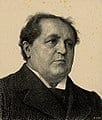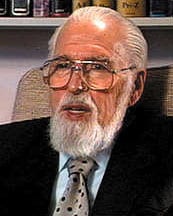 Let’s get clear from the start: there is simply no such thing as Christian Nationalism. If one is a Christian, any sort of nationalism– a word that includes in its definition an exclusive claim for patriotism toward one nation and a xenophobic rejection of other nations– and that asserts a connection to Christianity is by definition ruled out. Christianity, among many other things, is a universal religion, one that avows “God sent the son into the world not to condemn the world but that the world might be made whole through him” (John 3:17). The word translated “world” is the Greek word “cosmos.” Thus is any form of nationalism called into the most serious question by the words of the Gospel themselves.
Let’s get clear from the start: there is simply no such thing as Christian Nationalism. If one is a Christian, any sort of nationalism– a word that includes in its definition an exclusive claim for patriotism toward one nation and a xenophobic rejection of other nations– and that asserts a connection to Christianity is by definition ruled out. Christianity, among many other things, is a universal religion, one that avows “God sent the son into the world not to condemn the world but that the world might be made whole through him” (John 3:17). The word translated “world” is the Greek word “cosmos.” Thus is any form of nationalism called into the most serious question by the words of the Gospel themselves.
And yet a virulent and encroaching so-called “Christian nationalism” is rearing an ugly head in our politics in ways not seen for many decades. Indeed, Donald Trump did not reinvent Christian nationalism, but with his words and actions over the past four years, he certainly reinvigorated it, moving it from a decidedly fringe series of ideas toward the center of our national discussion. I have just read a book that addresses the rise of this disparate, yet far-flung phenomenon that I commend to you. It is Katherine Stewart’s The Power Worshippers: Inside the Dangerous Rise of Christian Nationalism (Bloomsbury, 2019). Stewart is no theologian but a dogged journalist who has spent considerable time among persons who class themselves as Christian nationalists, that is as people who have dedicated their lives to the attempt to make Christianity, as they understand it, the dominant, indeed the sole, faith tradition in all aspects of US American culture. Many of these believers saw Donald Trump as their chosen vehicle that would carry them to come closer to their aspirations as the dominant caste in our nation. Their vote for him, both in 2016 and in 2020, was cast with the hope that he would lead their crusade to takeover the cultural life of the nation, thus defeating the forces of secularism and humanism that have, in their minds, lead US America to the verge of collapse and ruin. Trump’s campaign slogan, “Make America Great Again,” was a concise summary of their central dream that America needed desperately to return to its founding greatness, namely a Christian nation, chosen by God for a unique mission in the world. That mission was nothing less than American domination of the world with its military might coupled with its single-minded notion that what we have and who we are should be and must be the envy of the entire globe. Trump’s jingoistic isolationist stances and his tough talk about American exclusivity and perfection sounded to these persons as the siren call of a longed-for messiah. His decisive defeat at the polls in 2020 was for them a bitter pill, and as he stoked wild and unproven allegations of his election victory, screaming that he could only have lost if the election had somehow been stolen from him, these Christian nationalists bought into that false rhetoric completely, because they knew that their messiah was electorally unbeatable, such was their passion for him, and that only a nefarious cabal of socialists, communists, and depraved Democrats could have brought about such a supposed defeat. Among those who assaulted the capitol of the country on Jan.6, there were certainly some Christian nationalists who carried “Jesus 2020” banners, along with wooden flag sticks topped by Christian crosses, and who prayed through a bullhorn while occupying the chamber of the US Senate.
How did all these wild and wooly notions come about? Just who are the authors, creators, and perpetrators of this fractious and frankly absurd perversion of the central tenets of Christianity? Stewart in her book addresses both of those questions in some detail, but I think two names, neither of which are household ones, appear again and again in the literature that is printed and made available in countless conferences, churches, and political gatherings from coast to coast. One has been dead for nearly twenty years, while the other is still very much alive and active.
The first is RJ Rushdoony, who is the theological and cultural guru of this movement. His writings are voluminous, but may be summarized as follows: he wanted a return to “biblical” law in America. That is, the Bible, as he read it and understood it, was to serve as the final arbiter of all things in a renewed and revived America. The Bible, he said over and again, commands that Christians exercise complete and absolute dominion over all the earth and all its inhabitants. As a result of that necessary domination, women must be subordinate to men, as God has ordained, while men are to be ruled by an aristocracy of orthodox Christian clergymen. And the federal government is nothing less than the source of all things evil. If this sounds something like the ruling system of Iran, where the mullahs have the final word in all matters religious and secular, you are right. Rushdoony himself was a refugee from the Armenian genocide by the Turks, an event that largely determined how his views of the world and its governance are to be described. In that terrible event it was more than obvious that Islam and Christianity could never exist together in peace.
Rushdoony also believed that public education was nothing less than a threat to civilization, for it “trains women to be men” (?) and represents “primitivism” and “chaos.” He makes these wild claims because he believes that public education is based on humanism and the mixing of all peoples together, a sure way to pollute and debase the greatness of the superior Christian. Rushdoony learned these appalling lessons from certain Dutch Reformed Presbyterians, like Cornelius Van Til and Abraham Kuyper. Both of these theologians believed that the only possible origin of truly rational thought was to be found in the absolute truth of the Bible, truth in all of its particulars, politically, socially, economically, anthropologically, and religiously. Kuyper offered a quotation that is repeated throughout the literature of the movement: “There is not a square inch in the whole domain of our human existence over which Christ, who is Sovereign over all, does not cry, Mine!” That boast stands at the very heart of the Christian nationalist’s drive for dominance over all the structures of society.
The living figure that plays a large role in the beliefs and practices of Christian nationalists is David Barton. Barton, a life-long resident of Aledo, TX, and CEO of the Wall Builders Association, an evangelical Christian organization, is best known for his fast and loose employment of historical information, especially when he is arguing about the bed-rock idea that US America has enshrined in its founding documents the absolute wall of separation between church and state. In his now-withdrawn book, Thomas Jefferson’s Lies, Barton tried to say that Jefferson never directly espoused that belief, despite having said so explicitly in a letter to Danbury Baptists in 1802. Barton claimed that what Jefferson really meant was that the state should never control the church, but the Christian church’s power over the state, to play the central role in the state’s formation and practice, was sacrosanct in the Constitution. Numerous historians have found much of Barton’s work to be fanciful if not completely untruthful. This has had little effect on Barton’s outsized influence on the Christian nationalist movement. He is their intellectual historian, speaking at numerous conferences and churches over the last 40 years. His lack of academic historical credentials—he has a BA from Oral Roberts University in Religious Education—has not made him any less an “expert” in the eyes of his many followers. He centrally believes that US America was founded as a Christian nation, and that the Bible should be the final arbiter for all activity in that Christian nation.
This essay presents only the barest bones of a multi-faceted and potent group of men and women who believe fervently that US America has lost its way and is on the road to ruin if it does not return to its Christian roots, found exclusively in a particular reading of the Bible. I urge you to acquaint yourself with this emerging and powerful contingent of our fellow citizens, despite their beliefs that many of us would judge to be largely unhinged from any reality and a subject for ridicule and SNL sketches. I assure you that millions of US Americans find those ideas not only congenial to their way of thinking but also the correct path we all must trod if we are to become the great America that God has destined us to be. Let me repeat what I said at the start of this piece: Christian nationalism is not Christian in any sense that I mean that word. However, my view of the Bible, my 50-year reading of it, is to them just as ridiculous as I find theirs to be. How we finally might speak to one another is a question to which I have no easy answer. I do know that they are a modern force to be reckoned with, and that I must do something more than use my writing as a sword with which to skewer their viewpoints. Still, as a Christian, one of my charges is to open myself up to all my fellow human creatures. Somehow I hope to be able to do that even here among those who assert a so- called Christian nationalism.
(Images from Wikimedia Common and Wikipedia)











